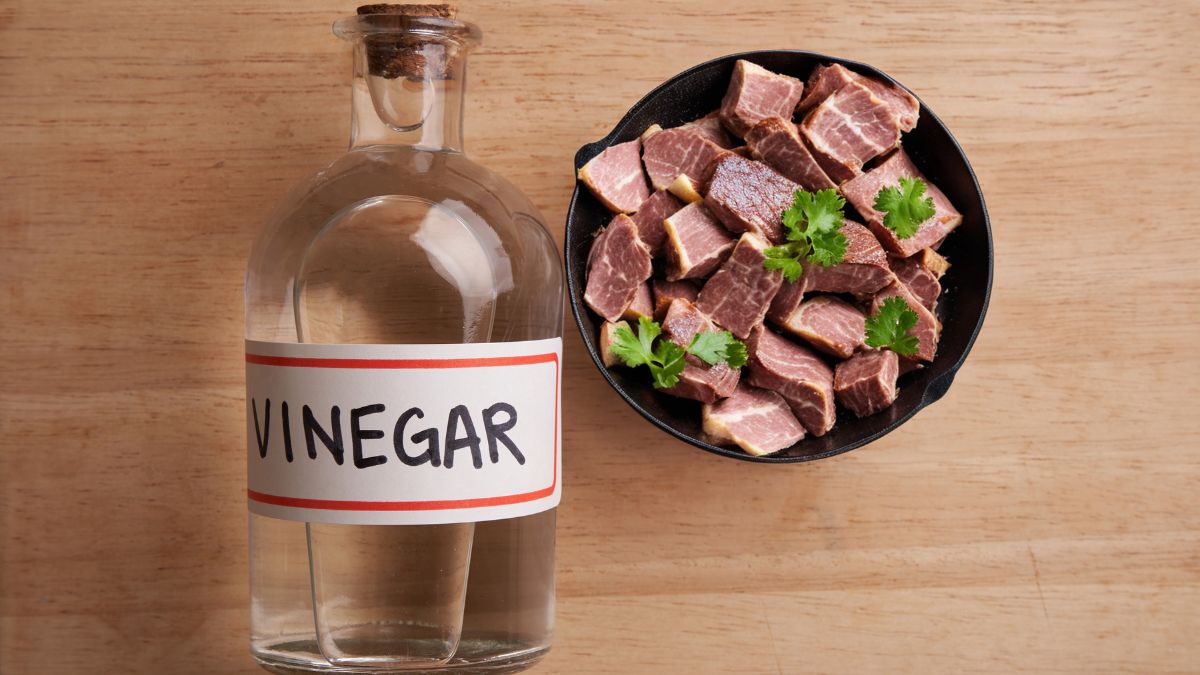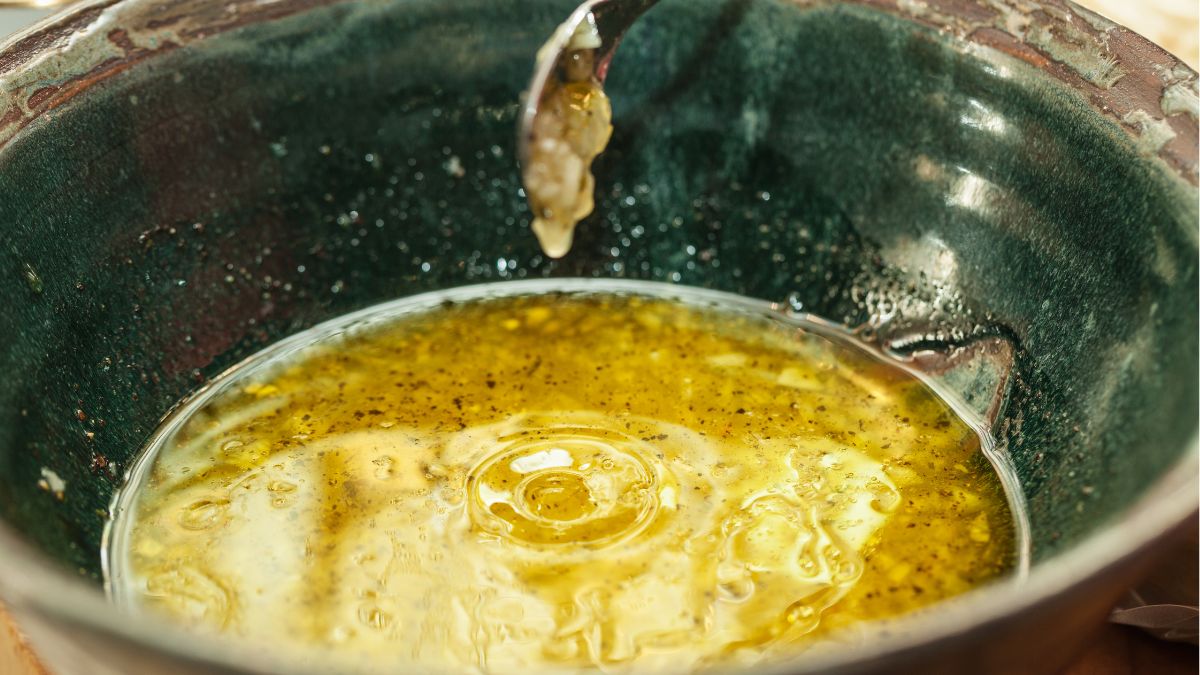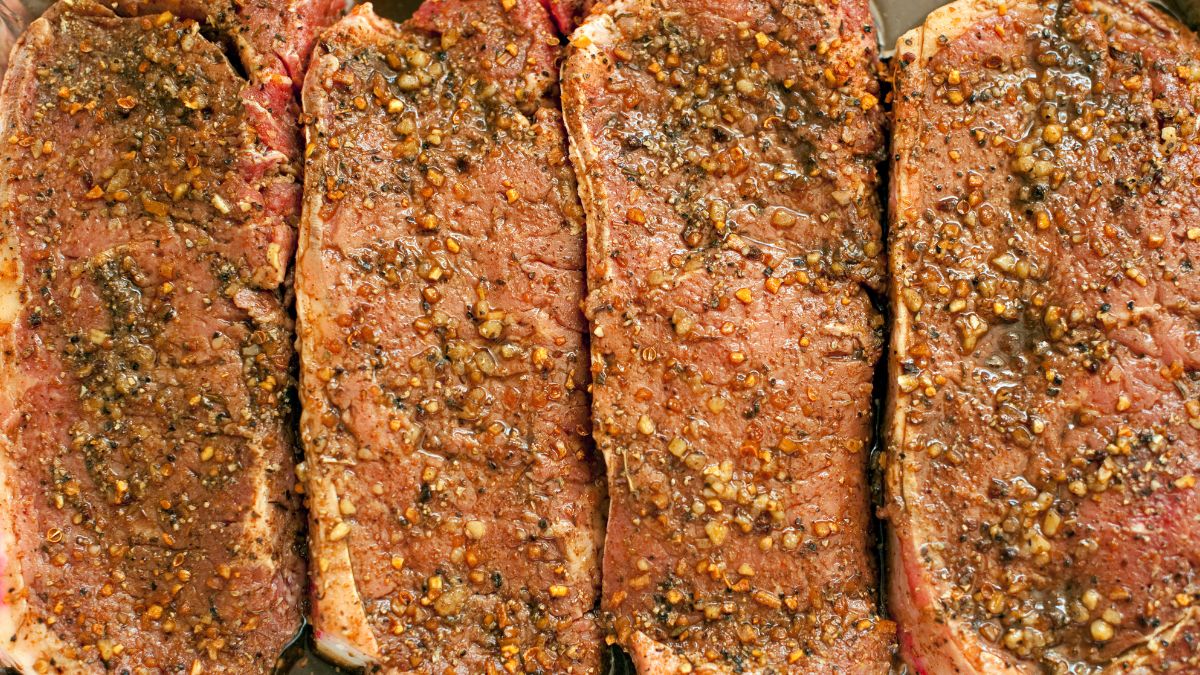What Does Vinegar Do to Meat? Why Should You Use It?

Moving away from store-bought marinades and experimenting with more homemade recipes is all the rage right now, and I love it! In the search for unique and delicious flavors, many are looking to cooking techniques like vinegar-based marinades. But what exactly does vinegar do to meat?
Vinegar can be used as a meat tenderizer when used correctly. Not only does it add some extra flavor to the meat, but it can also help make it more tender. However, it’s important to remember that vinegar should not be left on the meat for too long, as it can have an adverse effect and make it tough.
Is vinegar really a better choice than store-bought marinades? And if you do decide to try it, what’s the best way to use it? Let’s find out! So, grab your bottle of white distilled vinegar, and explore how this pantry staple can add zest and tenderness to your next meal!
Why Do People Put Vinegar on Meat?
The answer to why people choose to put vinegar on meat holds a lot of promise – if done right, vinegar can work wonders in tenderizing your meat. After all, tenderizing meat is all about breaking down the proteins and fibers naturally present in the flesh.
And vinegar – which is actually acetic acid – does just that, acting as an agent to break down proteins. It also adds flavor when used correctly.
The vinegar’s acid helps break down those tough structural proteins, allowing you to enjoy a tender steak or chop. Not only that, but since marinades are primarily acidic, they can create flavorful and juicy meat dishes as well.
It’s important to note that when using vinegar for tenderizing meat, it’s best not to leave it on too long, or your dish may become too acidic or have a strange flavor. Depending on the type of vinegar used and how long it’s left on the meat, you may be able to leave it overnight – but I usually don’t leave it for any longer than this because it may cause problems with taste and texture.
White wine or apple cider vinegar is best for marinating meats because they have a milder flavor than balsamic or red wine vinegar.
So, if you marinate the meat with vinegar, you can get several benefits. Vinegar’s acidity helps break down the muscle fibers of the meat, making it much more tender. This can be particularly useful for tougher cuts, such as chuck steak or beef shank.
Additionally, vinegar helps to add flavor to the meat; since it is acidic and has some sweetness, it pairs well with savory herbs and spices.
Can You Leave Meat in Vinegar Overnight?
The right amount of time to leave the vinegar on the meat is essential. Marinating your meat overnight gives plenty of time for the flavor to be absorbed by the protein fibers; however, too much time can cause the acidity from the vinegar to over-tenderize and make your steak mushy.
So, can you leave the meat in vinegar overnight? It’s not recommended. Vinegar is an acidic ingredient, and if left in contact with the meat for too long, it can actually change the texture and make it unappetizing.
Most recipes recommend marinating the meat for 30 minutes up to several hours. Anything longer than that can cause the meat to become unpleasantly tender and lose its flavor.

If you’re looking for a longer marinade, try adding reduced amounts of vinegar and other ingredients like olive oil, garlic, Italian herbs, Worcestershire sauce, or any combination of these. I quite like this hack since doing so creates an acidic tenderizer but still keeps the flavor of your favorite cuts of meat intact. An additional benefit is that these ingredients, known as aromatics or flavoring agents, will also improve the taste!
How to Properly Soak Meat in Vinegar to Tenderize It?
So, how exactly should you use vinegar to tenderize your meat?
As we have seen, it’s important not to leave the meat in the vinegar for too long, as it can go from tenderizing to ruining the flavor and texture of your favorite piece of steak in no time. The key is to soak for a short amount of time.
You have a few options when it comes to the type of vinegar you use: plain white vinegar, cider vinegar, or malt vinegar will all work. Depending on your preference, you can adjust the ratio of water and vinegar accordingly. Generally, a 1:1 ratio is recommended but feel free to experiment.
Simply submerge the meat in the marinade and let it sit for an hour or so before removing it and patting it dry with paper towels.
Finally – and this is especially important – if you want to use an acidic liquid like vinegar on your meats but don’t want the taste of it to linger, make sure to rinse off your meats after soaking them in the liquid. This will also help with eliminating any odors that the vinegar mixture may have left behind.
What Can You Use Instead of Vinegar to Tenderize the Meat?
If you’re not a fan of vinegar or don’t have any at hand, there are other natural ways to tenderize your meat. A traditional method is to use a tenderizer hammer – the kind with multiple spikes that puncture the meat – which helps to physically break up the tough muscle fibers. This method does the job almost instantly, but it also tends to flatten the cut of meat and can make it slightly mushy if used too liberally.
Alternatively, you can opt for marinades that are acidic enough to do what vinegar does. A good combination for marinades is either lemon juice or pineapple juice with oil, plus some herbs and spices.

You can also just use lemon juice by itself in a shallow bowl or dish – ideally, one that’s made of glass or ceramic so it’s resistant to acid corrosion – and let your steak soak in there for at least 30 minutes.
Some people swear by using cola or beer as a marinade ingredient. This will give it a unique flavor while still helping to break down connective tissue and make it tender.
While these liquids won’t act in quite the same way as vinegar (they do contain acids like phosphoric acid and lactic acid, however), they do give your steak extra flavor without adding too much salt or fat, which makes them healthier options if you’re looking for an alternative to vinegar-based marinades.
Lastly, try using a combination of flavors such as soy sauce, garlic, honey, and lime – each one has its own impact on the finished product!
